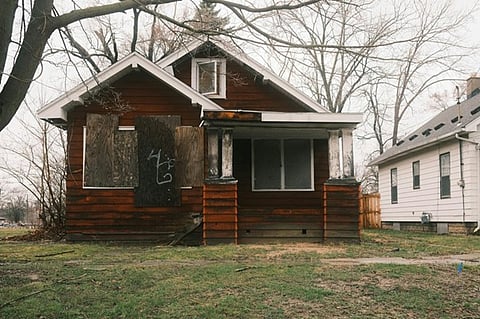Roof Leaks, Foundation Cracks, and Other Value Killers You Shouldn’t Ignore
Owning a home means more than keeping up appearances. Small issues like roof leaks, foundation cracks, or damp basements may seem harmless at first, yet they quietly chip away at your property’s value. Left alone, these problems grow into major repairs that scare away buyers and lower your selling price. Knowing what to look for helps you catch warning signs early and protect your investment before it loses worth.
Hidden Costs Behind Roof Leaks
A leaking roof might look like a small patch job, yet it signals something deeper. Water sneaking under shingles can rot wood beams, damage insulation, and encourage mold growth. What starts as a minor stain can easily turn into thousands in repair costs. Roof issues often come from cracked flashing, missing shingles, or clogged gutters that force water to back up under the roofing layers. Similarly, neglecting HVAC repair can lead to inefficient heating or cooling, higher energy bills, and even system breakdowns that affect your home’s comfort and air quality. Scheduling roof and HVAC inspections twice a year—especially after heavy storms or seasonal changes—helps catch damage early before it spreads.
When Foundation Cracks Signal Bigger Trouble
Hairline cracks are common in concrete, yet wider gaps or shifting walls can mean foundation movement. Once the structure starts settling unevenly, you’ll notice slanted floors, doors that stick, or cracks forming near windows. These are warning signs that need attention right away. Poor drainage, expanding soil, or underground leaks often cause foundation strain. If cracks are wider than a quarter inch, contact a structural specialist immediately. Addressing the problem early prevents higher repair costs and keeps your home safe and stable.
Why Basement Moisture Is More Serious Than It Looks
Basement dampness doesn’t just smell bad. It signals that water is finding a way inside. Moisture encourages mold, weakens concrete, and can water damage your flooring and stored belongings. Over time, it seeps upward into your living space, affecting air quality throughout the house. Make sure downspouts carry water far away from your foundation, and gutters stay clear. If you notice puddles after rain, install a sump pump or waterproof the walls. A dry basement adds comfort, safety, and long-term value to your home.
Electrical and Plumbing Neglect Hurts Resale Value
Outdated wiring or aging pipes can silently hurt your home’s value. Old aluminum wiring poses fire hazards, while corroded pipes cause leaks hidden behind walls. Buyers often back away when inspections uncover these issues. Upgrading to modern materials like copper wiring or PEX plumbing pays off long-term. It ensures safety and reliability while improving your home’s resale potential. Buyers feel more confident knowing they won’t face immediate system replacements.
Curb Appeal Still Matters Even After Repairs
After handling big repairs, the exterior still plays a major role in buyer perception. A cracked driveway, faded paint, or dying plants can make a home look neglected. First impressions matter, and curb appeal often decides whether a buyer wants to step inside. Simple updates go a long way: fresh paint, trimmed shrubs, power-washed siding, and updated outdoor lighting. These small efforts build trust and make your home feel move-in ready.
Signs of Roof Damage You Might Overlook
Not all roof problems are easy to spot. Shingles can curl, flashings may loosen, and granules might collect in the gutters. These subtle hints point to wear that, if ignored, leads to bigger leaks later. After storms or strong winds, check for missing shingles and sagging areas. A quick professional inspection can prevent months of unseen water damage. Staying proactive protects your roof and the rooms beneath it.
When You Should Call in a Professional
If problems feel overwhelming, calling experts is the smartest move. Structural issues, moisture damage, or major repairs require proper diagnosis and the right tools. A professional can identify whether you need sealing, replacement, or drainage improvements.
Homeowners in Missouri who prefer a simpler route often work with Chris Buys Homes KC, a trusted local home buyer that purchases properties as-is for cash. This option lets sellers skip costly repairs and close deals fast, turning potential stress into a smooth solution. Whether your home has leaks, cracks, or mold, you can sell it quickly without fixing every detail.
Mold, Mildew, and Air Quality Warnings
Once water enters walls or ceilings, mold can form within days. It spreads quietly and often shows up as a musty odor or dark patches on drywall. Mold not only damages surfaces but also affects indoor air quality and health. Inspect basements, attics, and under-sink areas regularly. Keep humidity below 50% using a dehumidifier, and fix leaks immediately. If black mold appears, hire professionals for removal. Quick action keeps your home safe and prevents further damage.
Keeping Small Issues From Becoming Value Killers
Regular maintenance prevents big surprises later. Clean gutters, seal foundation cracks, and check your plumbing every few months. These habits stop small problems from growing into budget-draining disasters. Buyers appreciate homes that have been cared for consistently. Staying on top of maintenance shows pride of ownership and adds credibility during negotiations. Preventive care always costs less than emergency fixes.
When in Doubt, Act Fast
Home problems don’t wait. A leak becomes a flood, and a crack turns into a split. The sooner you respond, the more value you save. Keep an eye on your property, schedule inspections yearly, and address any unusual changes quickly. A home that’s maintained regularly stays strong, healthy, and desirable. Whether you plan to sell soon or years from now, acting early protects your equity and peace of mind.
Inspired by what you read?
Get more stories like this—plus exclusive guides and resident recommendations—delivered to your inbox. Subscribe to our exclusive newsletter
Resident may include affiliate links or sponsored content in our features. These partnerships support our publication and allow us to continue sharing stories and recommendations with our readers.

